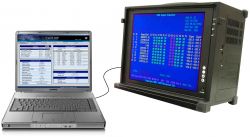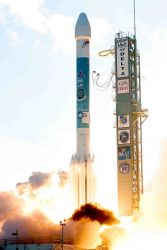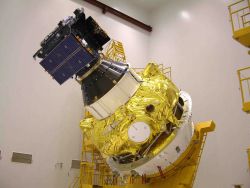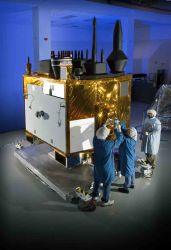STM Launches 32-Channel GPS Processor
STMicroelectronics has introduced Cartesio, its new automotive-grade application processor with embedded GPS for navigation and telematics. The processor couples with ST’s GPS RF chip (STA5620) to provide a core receiver unit.
Cartesio (STA2062) integrates a 32-bit ARM CPU core with a high-sensitivity 32-channel GPS subsystem and a large set of connectivity peripherals, including CAN, USB, UARTs, and SPI. It also provides on-chip high-speed RAM and real-time clock functionality, according to the company.
By Glen Gibbons





